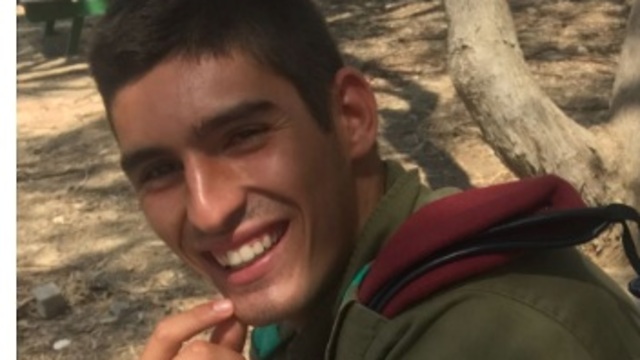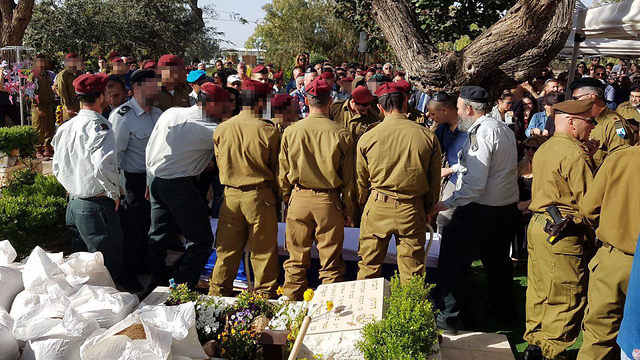
Soldier who shot comrade to death charged with manslaughter
Sgt. N. claimed shooting was 'accident, not gunplay' but was charged by Military Prosecution with manslaughter of his comrade Staff Sgt. Shachar Strug; personal measures taken against official in elite unit, including withdrawing promotion of unit's commander, removal from posting of team commander; inquiry commission's report delineates culture of improper gunplay, with 3 similar incidents taking place in last year.
Immediately after the shooting, the soldier told the IDF's Criminal Investigation Division (CID) that "It was an accident, not gunplay. We practiced drawing a gun in a room on-base, as is common in the unit. He's my best friend, and I didn't know it was loaded."
The indictment describes the chain of events that transpired on March 20, when Sgt. N. shot Staff Sgt. Strug.
The two soldiers were supposed to head out for practice at around 7:30pm that evening, but it was postponed by about half an hour.
At 7:50pm, Sgt. N. entered their barracks room, followed shortly thereafter by Strug. The two stood facing each other and drew their Glock 19 guns.
Sgt. N.'s gun was loaded and did not have an anti-fire mechanism. He aimed it at Strug's chest, cocked the weapon and pulled the trigger. A bullet was discharged and hit Strug, killing him.
Sgt. N.'s lawyers from the Military Advocate General's office, said they "received the news of the military prosecution's decision to charge with manslaughter with great disappointment. The defense team believes the investigative material, as well as the consistent version of the soldier, clearly show the appropriate charge in this tragic case is negligent homicide."
The judge at the military court in Jaffa extended the remand of Sgt. N. by one week.
Duvdevan officers reprimanded, removed
Chief of Staff Gadi Eisenkot has decided to adopt in full the conclusions and recommendations of the military inquiry commission created following the shooting, and instructed to withdraw the promotion of the commander of the two soldiers' unit to a commanding post in the army's elite formation—the 98th Paratroopers Division.
While Lt.-Col. A. will conclude his posting as Duvdevan's commander in the coming weeks—as planned—he will not be promoted to colonel or be promoted to a more senior posting in the next two years.
The sanctions levied on the unit's commander came following the commission's findings, which exposed a reprehensible culture of illegal use of firearms in the elite unit, including soldiers drawing weapons on each other in a non-formal environment.
In the past year alone, it turned out, three similar incidents in which a bullet was accidentally discharged took place in Duvdevan, but were concluded without casualties. The incidents were similarly looked into, but no conclusions were drawn and the phenomenon remained widespread.
In addition, the two soldiers' superior officer, a team commander with the rank of lieutenant, was removed from his posting.
"The unit's chain of command did not operate well enough to change its internal culture," IDF Spokesperson's Brig.-Gen. Ronen Manelis said Tuesday afternoon. "Commanders did not criticize the matter or enforce relevant orders. It was found a deficient norm of playing with weapons was prevalent in the unit."
"The inquiry commission determined this was not an isolated incident, but rather part of a culture of illegal use of firearms. The commission further determined insufficient review by commanders existed regarding prevention of such acts," he continued.
The commission also recommended a series of new instructions be introduced to all of the army's elite units whose members use pistols, and which redefine the use and training with said weapons. It was further decided that the army's Operations Directorate will redefine the units allowed to use handguns once a year.

















